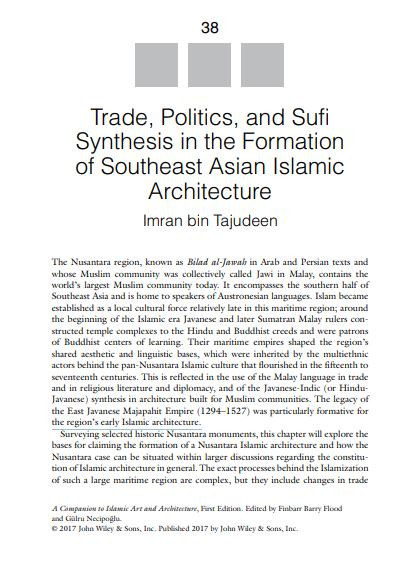
The Nusantara region, known as Bilad al‐Jawah in Arab and Persian texts and
whose Muslim community was collectively called Jawi in Malay, contains the
world’s largest Muslim community today. It encompasses the southern half of
Southeast Asia and is home to speakers of Austronesian languages. Islam became
established as a local cultural force relatively late in this maritime region; around
the beginning of the Islamic era Javanese and later Sumatran Malay rulers constructed temple complexes to the Hindu and Buddhist creeds and were patrons
of Buddhist centers of learning. Their maritime empires shaped the region’s
shared aesthetic and linguistic bases, which were inherited by the multiethnic
actors behind the pan‐Nusantara Islamic culture that flourished in the fifteenth to
seventeenth centuries. This is reflected in the use of the Malay language in trade
and in religious literature and diplomacy, and of the Javanese‐Indic (or Hindu‐
Javanese) synthesis in architecture built for Muslim communities. The legacy of
the East Javanese Majapahit Empire (1294–1527) was particularly formative for
the region’s early Islamic architecture.
I agree to the terms outlined below:
You agree to upload and assign Mosqpedia Database the rights to use the content worldwide and in perpetuity across all current and future media platforms. Mosqpedia Database may edit, copy, adapt and translate your contribution.
The content will be distributed under the Creative Commons Attribution-Deed – Attribution-NonCommercial-NoDerivatives 4.0 International – Creative Commons
All data will be stored in line with data protection regulations.